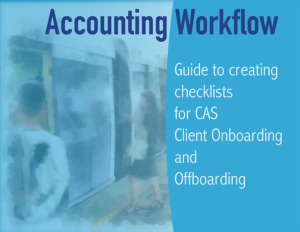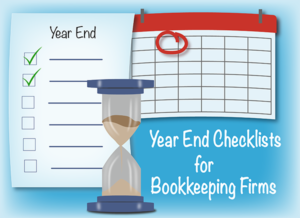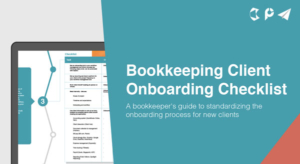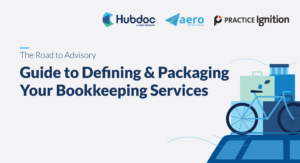When you’re onboarding new clients at your accounting firm, there’s a lot that can go wrong. They say you never get a second chance to make a first impression, and that’s painfully true where business relationships are concerned. Your client onboarding procedure, however, doesn’t just affect camaraderie with new clients — it also can significantly impact your bottom line. While it may seem like more clients simply equate to more income, poor procedures can actually cut into your profits.
Scope creep. There are not many words scarier than those when you’re an accountant. But did you know there’s a way to prevent scope creep through careful and consistent client onboarding procedures? Here’s some of our advice for keeping scope creep from creeping up on you at your accounting firm.
Cut Out the Middleman
A lot of confusion can be avoided if the accountant working with the client is in the room from the beginning. Too often, the primary accountant for a client is just given a folder of information about their new charge after the initial onboarding has already taken place… And wouldn’t it just be easier to have them partake in the onboarding process? Excessive meetings and telephone games can be avoided by letting the accountant take charge of this procedure. Your accountant will also better understand their own capacity. While a task might take you two hours, it could take them three, and those hours should be billed accordingly.
Have Client Onboarding Procedures in Place
Having written client onboarding procedures can save you a lot of time, hassle, and money down the line. This is a vital step in the client relationship-building process, after all, and you don’t want to miss a single important part. Any time you spend working that is not previously scheduled is unpaid work. One service might include many different little tasks. If you don’t include those in your initial contract, you aren’t being compensated fairly. You can consult your recorded procedures to prevent this from happening.
Avoid Scope Creep With Engagement Letters
Your engagement letter isn’t just a contract — it clarifies how much you are being paid and for what services. It’s important that this document is accurate and accounts for ALL the work you will be doing. You won’t have to worry about being unpaid for necessary work if your processes are detailed. Consult your written procedures before drawing up the engagement letter so that you understand everything that goes into the services you’ll be providing.
Rolling out the welcome wagon is a pretty involved process, and missing essential steps can harm your working relationship with a new client and your profits. Scope creep is always, well, creeping up on us. The best way to avoid unpaid work and legal upsets is preparation. Ensuring you have a rock solid engagement letter, including primary accountants early on in the onboarding process, and having all your procedures recorded will keep you right on track to profit AND build meaningful relationships.











